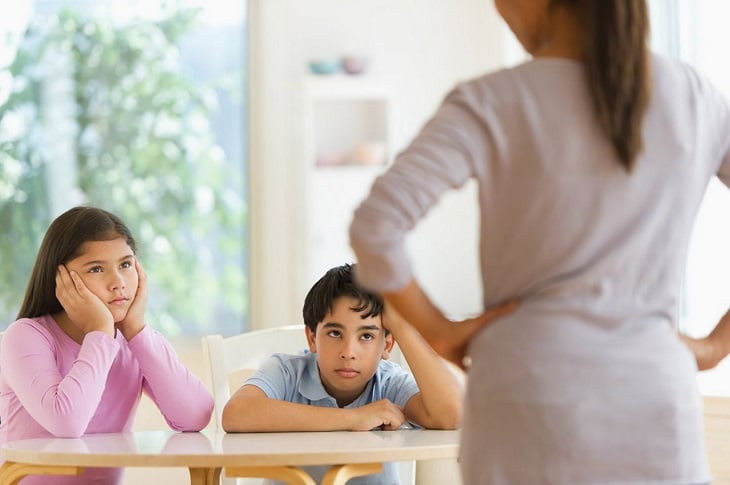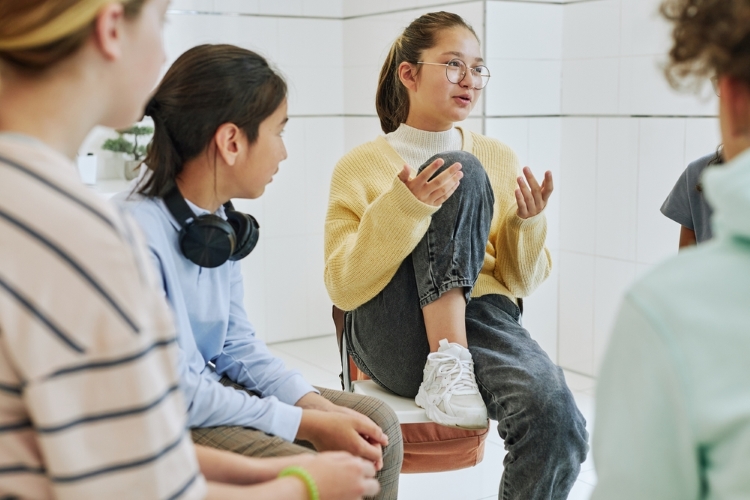According to research, puberty is the stage of development from childhood to adulthood, which begins between the ages of 10 and 19. During this period, it is divided into three different stages:
– Stage 1: 10-14 years
– Stage 2: 14-16 years
– Stage 3: 16-19 years.
To identify if a child is entering puberty, the first thing parents should pay attention to is the physical development. At the same time, the child’s psychological state also undergoes significant changes.

Illustration
Many parents have neglected the psychological changes in children during the puberty period. This is extremely dangerous because not understanding the child’s psychological state during puberty can leave negative impacts on their development.
Here are some psychological changes in children during puberty:
Increased independence
From being completely dependent on their parents, children at puberty start to exhibit autonomy in their thoughts and actions. They want to have a say and make decisions regarding their own issues.
The level of independence in children varies in each stage:
From 10-13 years, children tend to separate themselves from their parents, participate less in activities with their parents, and reluctantly accept their parents’ advice.
From 14-16 years, conflicts between children and parents become more intense, as children pay less attention to the family and spend more time with friends.

Illustration
From 17-19 years, children become more aware of their parents’ advice, show more respect and understanding towards their parents’ experiences.
Increased focus on bodily changes
From 10-13 years, children begin to be concerned about themselves and the changes that occur during puberty. They can easily feel worried, sad, or self-conscious about the flaws or compare themselves to their peers.
These changes are fundamental because during puberty, children are curious about the changes in their bodies, want to understand their body structure, differences between genders, and have the desire to enhance their appearance as they progress through different stages of puberty.
They change their clothing style, want to shop for themselves and follow fashion trends and friends, and many of them no longer wear clothes bought by their parents or refuse to wear them, wanting to dress according to their own preferences…
Beginning of romantic relationships and sexual development
From 14-16 years, children start interacting with friends of the opposite sex, begin dating and experimenting with sexuality.
Parents need to pay attention to the most significant changes in their child’s relationships. Pay attention to your child’s friends.

Loss of self-control, experimenting with various things
From 14-16 years, due to the high value placed on self-worth, it can easily lead to behaviors such as self-harm, depression, substance abuse…
This is a period of rapid accumulation of experiences, life skills, and the development of analytical thinking in various situations.
With all the psychological changes mentioned above, during this stage, in addition to the responsibility of taking care of and protecting their children, parents also need to be their friends, understand their changes in order to share, empathize, and guide their thoughts in the most positive way.
“Creating Lasting Memories: 10 Tips for Strengthening the Father-Child Bond”
Are you looking for effective ways to create a strong and close relationship with your child? If so, this article is for you! Find out 10 creative ways to nurture the father-child bond and make the relationship between you and your child more meaningful. These simple tips can help you create a special bond with your child and build strong emotional ties.
6 Secrets to Raising Independent and Happy Children: Learn from Dutch Parents
Dutch parents have a simple yet highly effective approach to child-rearing. They prioritize independence, resilience, and open communication in their children.



































